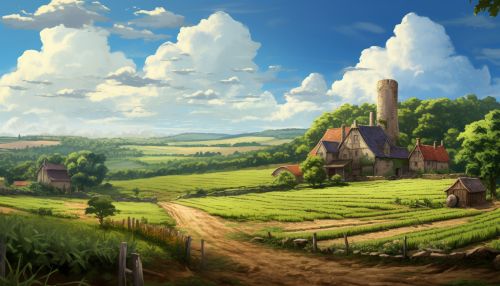Protests by French Farmers
Historical Background
The history of French farming is deeply rooted in the country's culture and economy. From the Middle Ages, when France was primarily an agrarian society, to the present day, farming has played a crucial role in shaping the country's identity. The evolution of farming practices, the impact of industrialization, and the challenges faced by farmers have all contributed to the current state of French agriculture.


Protests in the 20th Century
The 20th century was a period of significant change for French farmers. The advent of industrialization and the increasing globalization of the food market led to a shift in farming practices and a decrease in the number of small farms. This period also saw the rise of farmer protests as they fought against these changes and advocated for their rights.
The Farmer's Union and the Fight for Rights
The French Farmer's Union, or the Confédération Paysanne, was established in the early 20th century to represent the interests of small farmers. The union organized numerous protests throughout the century, advocating for fair prices for farm products, better working conditions, and the preservation of small farms.
Protests Against Industrialization
The mid to late 20th century saw a wave of protests against the industrialization of agriculture. Farmers rallied against the increasing use of machinery, the introduction of genetically modified crops, and the consolidation of farms into large corporations. These protests often involved blockades of roads and railways, strikes, and demonstrations in major cities.
Protests in the 21st Century
The 21st century has seen a continuation of farmer protests, with new issues emerging as a result of changing global conditions. Climate change, the European Union's agricultural policies, and the continued industrialization of farming are among the issues that have sparked protests in recent years.
Protests Against EU Agricultural Policies
One of the major sources of contention for French farmers in the 21st century has been the European Union's agricultural policies. The Common Agricultural Policy (CAP), which provides subsidies to farmers across the EU, has been criticized for favoring large farms and corporations over small farmers. French farmers have staged numerous protests against the CAP, calling for a more equitable distribution of subsidies.
Protests Against Climate Change
Climate change has also been a significant concern for French farmers. Changes in weather patterns, increased frequency of extreme weather events, and the impact on crop yields have led farmers to protest for more action on climate change. These protests have often been part of larger, global movements, such as the Fridays for Future protests.
Impact of Protests
The protests by French farmers have had a significant impact on the country's agricultural policies and practices. They have led to changes in government policies, increased awareness of the challenges faced by farmers, and a greater emphasis on sustainable farming practices.
